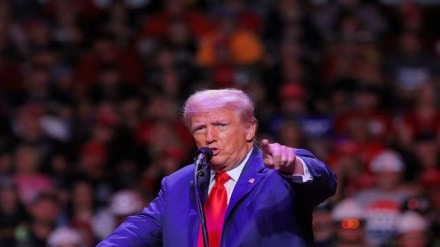By Atanu Biswas
For the vast majority of political analysts, Donald Trump’s success in winning the Republican presidential nomination in 2016 was a complete surprise. However, in his 2016 book, The Rise of Trump: America’s Authoritarian Spring, Matthew Mac Williams argued that Trump’s quick ascent through a confused Republican Party hierarchy was not an exception but rather the latest manifestation of a persistent theme in American politics—the propensity and temptation towards an ascriptive politics.
Before running for President three consecutive times, Trump was the US’ most flamboyant billionaire. He started hinting at a presidential run by 1987. He considered running as a Republican in 2012 after briefly considering doing so in 2000 with the Reform Party. When he publicly announced his intention to run for President in June 2015, Trump declared that the American Dream was dead but pledged to “bring it back bigger and better.”
Trump’s victory in the 2016 presidential election was one of the most startling upsets in American electoral history. The racial and ideological convergence that has changed the American voters since the 1960s, however, was largely responsible for it.
Subsequently, as President, Trump withdrew from important trade and climate agreements, prohibited travel from a number of Muslim-majority countries, imposed strict immigration laws, launched a global trade war, implemented record tax cuts, reshaped Middle Eastern relations, and has now started an unprecedented battle against the American universities—the foundation of American supremacy. Trump’s economic protectionism stands in stark contrast to Ronald Reagan and Margaret Thatcher’s free trade rhetoric, which drew inspiration from economists like Friedrich Hayek and Milton Friedman.
Trump, like many revolutionaries, was not an overnight sensation. He actually speaks for a growing number of Americans who believe that free trade and globalisation have harmed them the most. There’s no denial that innovative technology helped American businesses looking to increase profits by hiring cheap foreign labour.
Trump vowed to Make America Great Again. Indeed, the term “Again” plays a crucial role in this motto. “The myth of the Great Yesterday” is a fantastic phrase by the renowned Polish writer Ryszard Kapuscinski. As the majority of Trump’s supporters are white, blue-collar men without college degrees whose actual income has stagnated or decreased in recent decades, he has been able to effectively exploit this nostalgia. They believe that today is worse than yesterday, and Trump speaks to that feeling. Thus, in Trump, the electorate has found someone resisting globalisation and fighting against free trade. With his strict immigration policies and his crudely drawn connections between immigration and trade, Trump has gone one step further.
John L Campbell made the case in his 2018 book, American Discontent: The Rise of Donald Trump and Decline of the Golden Age, that the collapse of America’s Golden Age of prosperity immediately after World War II was the catalyst for the racial, ideological, political, and economic trends in American society. By the time Barack Obama was elected President in 2008, they had reached a tipping point. Obama’s election and presidency drove discontent to a breaking point. To his credit, Trump could capitalise on it to win the 2016 presidential election.
The protests against Communist rule in Europe were characterised as “rejective” revolutions by the distinguished Australian scholar Leslie Holmes, who said that although citizens were aware of what they opposed, they were unsure of what they wanted instead. The recent emergence of far-right parties in different European countries can be explained by the fact that electorates rejected the political parties that have characterised the “left” and “right” political stances since the end of World War II. Does such a “rejective” revolution account for Trump’s rise to the presidency? Remember that Trump’s broad socioeconomic base appears to include more people in lower income brackets and a greater proportion of older men.
The real lesson of the 2016 US election was that “grassroots voters have lost faith in elected officials and a government that isn’t living up to the promise of ‘by the people’,” according to Elise Jordan’s piece in Time magazine. But, in 2024, how did the American voters end up with a convicted felon accused of attempting to rig an election and who also faced impeachment? Is it merely the most recent example of the neoliberal political maxim “greed is good” from the 1980s? Or is this a result of Trump’s radical nationalism and isolationism?
In his 2022 book American Midnight, University of California, Berkeley historian and journalist Adam Hochschild outlined how the often-overlooked era of American history between World War I and the the Roaring Twenties may also explain Trump’s second term. Pervasive anti-immigrant prejudice and mass deportations characterised the era. The administration of President Woodrow Wilson essentially closed down news outlets that it didn’t agree with. Labour organisers were imprisoned by federal authorities, and political dissidents were threatened and occasionally assassinated by vigilantes.
In this backdrop, Sinclair Lewis’ 1935 novel It Can’t Happen Here might be worth mentioning. In the novel, Lewis depicted social unrest and political radicalisation in the US during the Great Depression. Berzelius “Buzz” Windrip, an ignorant demagogue who won the 1936 election with the help of millions of furious and destitute voters, is Lewis’ antihero. The angry voters marched with placards that read: “We are on relief. We want to become human beings again. We want Buzz!”
Nearly a century on, has the scenario been largely recreated within Donald Trump? “Government is not the solution to our problem; government is the problem,” Reagan famously stated during his first inauguration speech in 1981. The Trump elite’s anti-elitism may have been sparked by this diagnosis. What’s more, it appears that millions of Americans are prepared to buy such a counter-elitist rhetoric.
The writer is professor of Statistics, Indian Statistical Institute, Kolkata.
Disclaimer: Views expressed are personal and do not reflect the official position or policy of FinancialExpress.com. Reproducing this content without permission is prohibited.
